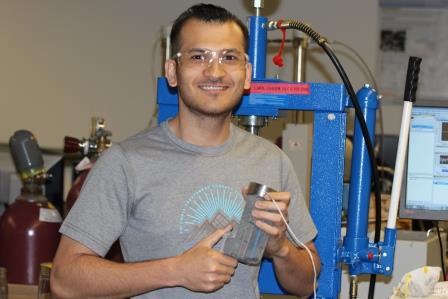Biography:
Aadish is a second year M.Sc. student in Petroleum Engineering at the University of Alberta, under supervision of Dr. Hassan Dehghanpour. Aadish grew up in India, Saudi Arabia and Qatar before attending the University of Kansas where he obtained a B.Sc. in Petroleum Engineering and completed the University Honors program. During his undergraduate program, he participated in several research projects and completed an internship with Schlumberger as a Well Stimulation Engineer in Wyoming. He also worked for Kansas Geological Survey as a Research Assistant on a CO2 sequestration project. Upon graduation, Aadish worked as a Production Enhancement Field Engineer providing fracturing and acidizing solutions in the Bakken, Montney, Duvernay and various other fields.
Aadish’s current research is to investigate the effects of hydraulic fracturing fluid retention on the rock and on subsequent hydrocarbon production, primarily in the ultra-low permeability rocks (shales) of Horn River basin in North-East BC. He is interested in field work and is passionate about tying petroleum geology with petroleum engineering studies, shale oil and gas production, and energy markets. For recreation, he enjoys river rafting, biking, camping and travelling.
